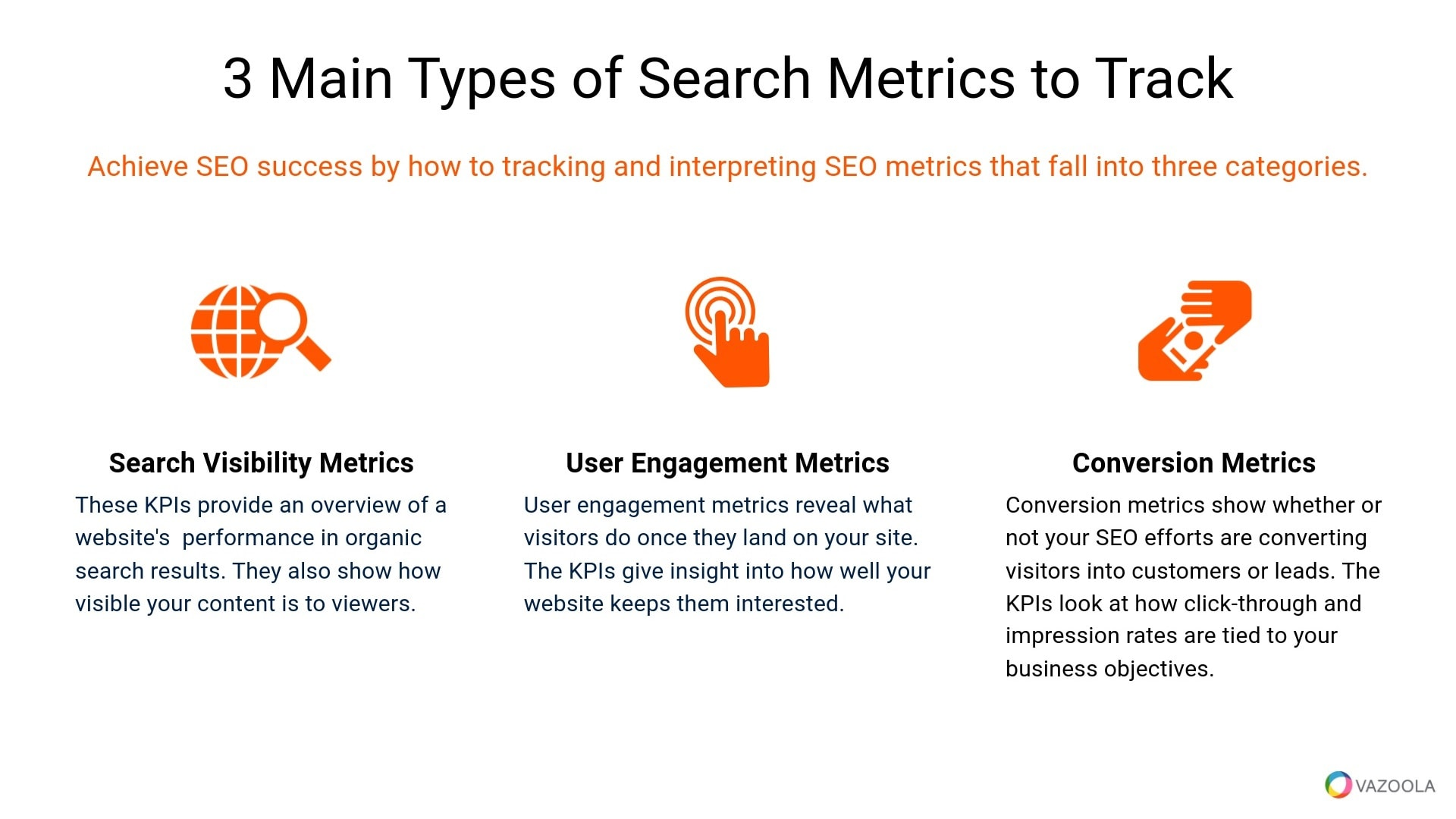Measuring SEO success with analytics and metrics involves tracking a combination of key performance indicators (KPIs) that reflect both organic search visibility and the quality of user engagement leading to business outcomes. The most important metrics to measure SEO success in 2025 include:
-
Organic Traffic: The volume of visitors coming from search engines, indicating visibility and reach of your SEO efforts. This is often tracked via Google Analytics 4 (GA4) or Google Search Console.
-
Conversion Rate from Organic Traffic: Measures how well organic visitors complete desired actions such as purchases, form submissions, or sign-ups, linking SEO performance directly to business goals.
-
Keyword Rankings: Tracking the position of targeted keywords in search engine results pages (SERPs) to assess visibility and competitiveness over time.
-
Click-Through Rate (CTR): The percentage of users who click on your site’s listing in search results, reflecting the effectiveness of titles, meta descriptions, and rich snippets.
-
Backlinks (Quality and Quantity): The number and authority of external sites linking to your content, which influence domain authority and trustworthiness.
-
User Engagement Metrics: Including bounce rate, time on page, pages per session, and return visits, which indicate content relevance and user experience quality.
-
Core Web Vitals and Page Load Speed: Technical SEO metrics measuring site performance and user experience, increasingly important for rankings.
-
Brand and Topical Authority Metrics: In the AI-driven search landscape, metrics such as presence in featured snippets, brand search volume, topic coverage, and E-E-A-T (Experience, Expertise, Authoritativeness, Trustworthiness) signals are critical.
-
Journey-Based Engagement Metrics: Segmenting engagement by user journey stages (awareness, consideration, conversion) to better understand how SEO supports the full customer funnel.
Tools commonly used for tracking these metrics include Google Analytics 4, Google Search Console, Semrush, Ahrefs, and specialized rank tracking and backlink analysis platforms.
In summary, measuring SEO success today requires a holistic approach combining traditional metrics like traffic and rankings with deeper engagement, conversion, and authority indicators, aligned with evolving search engine algorithms and user behavior.





